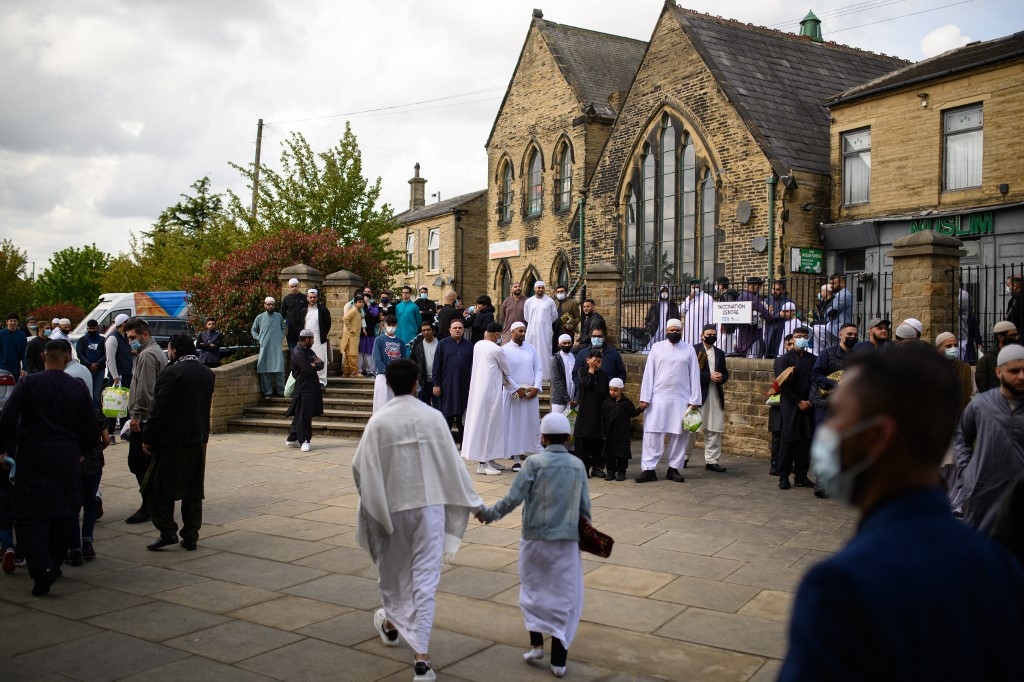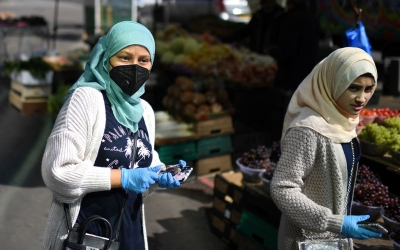For Britain's sake, we must unleash the potential of Muslim civil society

Monday marks the release of the British Muslim Civil Society Report 2023 at a launch event backed by the All-Party Parliamentary Group on British Muslims.
Based on a year of on-the-ground research, as the report's author, I explored the significant contributions made by Britain’s Muslims to the charity sector. It is the first report specifically dedicated to this theme, and its recommendations are directed at a range of stakeholders in the Muslim community as well as the wider civil society space.
The cost-of-living crisis and a new winter of discontent have put a spotlight on just how essential civil society is when public institutions such as the NHS are under huge pressure
The cost-of-living crisis and a new winter of discontent have put a spotlight on just how essential civil society is when public institutions such as the NHS, to take just one example, are under unprecedented pressure. While charitable institutions cannot make up for shortfalls in state funding, they are essential for staving off even worse outcomes from repeated crises.
Civil society, sometimes called the third sector, is made up of the charities and voluntary organisations that run our youth and community associations, our soup kitchens, our advocacy groups and our places of worship. They are the indispensable bedrock of a vibrant democracy.
The Muslim contribution to this sector is decades old and increasing in importance.
New MEE newsletter: Jerusalem Dispatch
Sign up to get the latest insights and analysis on Israel-Palestine, alongside Turkey Unpacked and other MEE newsletters
Recently released census data indicates that Muslims now make up 6.5 percent of the population of England and Wales, up from 4.9 percent at the time of the last census in 2011.
There are now 3.9 million Muslims in England and Wales. This population tends towards youthfulness and will bear a disproportionate degree of the nation’s economic burdens in the coming decades as our population ages. The Muslim Council of Britain (MCB) has described this aspect of Britain’s Muslims as “a strategic national asset” for Britain.
Civic duty grounded in faith
In its analysis of 2021 census data, the MCB has also highlighted that several important local authority districts in England now have very substantial proportions of Muslims. Roughly 30 percent of Birmingham's population, 22 percent of Manchester's and 15 percent of London’s are now Muslim.
Indeed, one London borough, Tower Hamlets, had the highest proportion of Muslims of any local authority in the country, at 40 percent.
As the focus groups that have informed this report indicate, many Muslims are driven to contribute to civil society out of a sense of civic duty that arises from their Islamic faith. Muslims feel that their faith calls on them to serve their communities and their neighbours of all faiths and none.
Additionally, studies have indicated that the Muslim population maintains its commitment to faith to a greater extent than the wider society. As recent census data has indicated, Britain is now a minority Christian country, with no particular faith commitment (including those who identify as having no religion) crossing the 50 percent mark. Britain is now truly a diverse landscape when it comes to religion.
In this context, it is especially valuable for Muslims to continue to cultivate what I witnessed was a widespread value in our communities: a faith-based motivation to serve humanity at large.
Furthermore, this should remind stakeholders in the charitable and public sectors that although secularisation is the dominant tendency of our societies, we should be wary of a one-size-fits-all approach to faith in public life.
Any such approach, especially one that seeks to marginalise faith from the public sphere in anything other than a symbolic form, could unwittingly end up marginalising voices that have much to contribute to our civil society spaces. Instead, we can broaden the conversation about the nature of civil society and public life in our increasingly diverse socio-cultural landscape.
High levels of poverty
Ironically for a religious community that was referred to by a past prime minister as Britain’s “biggest donors” who “give more to charity than any other faith group”, Britain’s Muslims themselves suffer disproportionate levels of poverty.
MCB analysis indicates that 40 percent of the Muslim population lives in the most deprived 20 percent of local authority districts. Further research they have shared with me indicates that roughly three-quarters of those Muslims (30 percent of British Muslims overall) live in the most deprived 10 percent of local authority districts in the country.
Yet, as my analysis indicates, Muslims have historically tended to send significant proportions of their charitable largesse overseas.
As I argue in the report, if such funds were strategically deployed in the UK, this may result in better outcomes both domestically and internationally. This would require Muslims to undertake regular exercises in introspection and critical self-reflection as a community in order to adopt a more strategic outlook on their charitable endeavours.
Partnerships with the public and private sectors
Part of a more strategic outlook would entail exploring how to form effective partnerships by cultivating supportive partners in local and national government, as well as within the business community.
A healthy society requires that the public, private and third sectors work in mutually supportive ways to contribute to better outcomes overall for our societies.
Britain’s Muslims can find innovative ways to empower civil society and make their charitable endeavours go the extra mile at a time when Britain most needs it
This report thus calls for closer partnerships between these three sectors.
Whether it is through the Faith Covenant, which calls on local government and religious groups to work more closely in addressing crises, or by encouraging successful Muslim businesses to create philanthropic foundations, Britain’s Muslims can find innovative ways to empower civil society and make their charitable endeavours go the extra mile at a time when Britain most needs it.
Efforts like the British Muslim Civil Society Report, which we hope will become a regular publication, can help provide an opportunity to step back and take stock of how the Muslim community in Britain can reflect on its civil society engagement.
This can offer all stakeholders from the public, private and third sectors, both Muslim and non-Muslim, insights on how best to engage one of Britain’s most civic-minded communities.
The views expressed in this article belong to the author and do not necessarily reflect the editorial policy of Middle East Eye.
Middle East Eye delivers independent and unrivalled coverage and analysis of the Middle East, North Africa and beyond. To learn more about republishing this content and the associated fees, please fill out this form. More about MEE can be found here.






